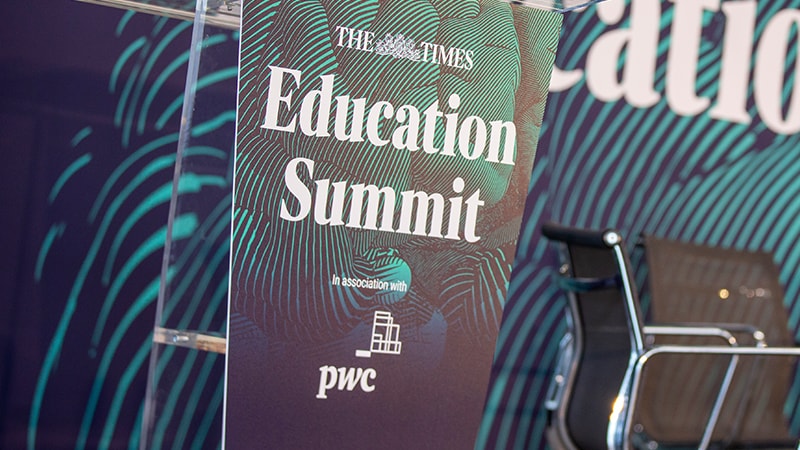
Supporting The Times Education Commission
With 85% of UK businesses experiencing or anticipating skills shortages, equipping young people for future jobs is vital to building a resilient and more inclusive economy. Working with The Times Education Commission brought the opportunity to contribute ideas for reimagining education to meet changing needs.
The Times Education Summit & Naomi Gabrielle Photography
Setting the scene
Forces such as emerging tech, the climate crisis, and changing working patterns, combined with disruption to learning caused by the pandemic, mean fresh approaches are needed to set up young people for success.
So, how could education be transformed to unleash the potential of every child? The Times Education Commission was established in summer 2021 to examine the system and produce proposals to answer this question. As a large employer that welcomes around 1,500 school leavers and grads from over 100 institutions every year, we were excited to contribute - particularly given our shared focus on social mobility.

“Employers will miss out on talent if they measure it through one lens alone. Assessment needs to be more inclusive. Basic numeracy and literacy should be a given. We also need other skills that stand the test of time, such as empathy, resilience and agility. You can't predict all the jobs that will exist in the future but you can predict the mindset needed to adapt and be ready.”
How we helped
Kevin Ellis, Chair & Senior Partner, and Laura Hinton, Head of Tax (which includes our People & Organisation practice) were among representatives from business, science, culture, politics, and education who shared perspectives. Others included former Prime Minister Sir Tony Blair and children’s laureate Cressida Cowell.
Chaired by journalist Rachel Sylvester, Kevin and Laura’s session focused on a business view of assessments. Our priority was to communicate the undue impact socio-economic background can have on young people’s academic performance, and the benefits we’ve seen from focusing entry assessments on future potential rather than past performance. We also wanted to recognise that education is about more than exams and coursework. As Laura put it, ‘It's not just about the grades but the broader experience of learning, participating, and meeting deadlines.”
We also wanted to provide constructive data. To do this, we funded and co-designed two surveys of 150 UK employers to understand their attitudes to how the education system prepares young people for work. The research also identified the skills needed to bridge the productivity gap - with digital and problem solving skills topping the list, and net zero capacity building representing another urgent challenge.
Our sponsorship of The Times Education Summit, at which Kevin spoke, helped the Commission bring together experts to inform its final proposals.

Laura Hinton
In the early months of the Commission, Head of Tax Laura Hinton gave evidence alongside Kevin Ellis about assessments and how employers can help improve opportunities for young people.
Making a difference
This year-long project was time to reflect on the resilience of young people and educators. Unemployment among 16 to 24 year-olds has been higher than for other working age adults for twenty years. And with added uncertainty about the future of work, they shouldn’t have to second guess skills needs.
Working with schools, colleges, and universities to bridge the gap between education and the world of work is central to our purpose as a progressive employer. Our research for the Commission goes a step further in identifying other employers’ needs and their huge appetite for collaboration.
As Kevin says in the Commission’s final report alongside the research findings, “Education should be about both character and qualifications. It should open up pathways.”







